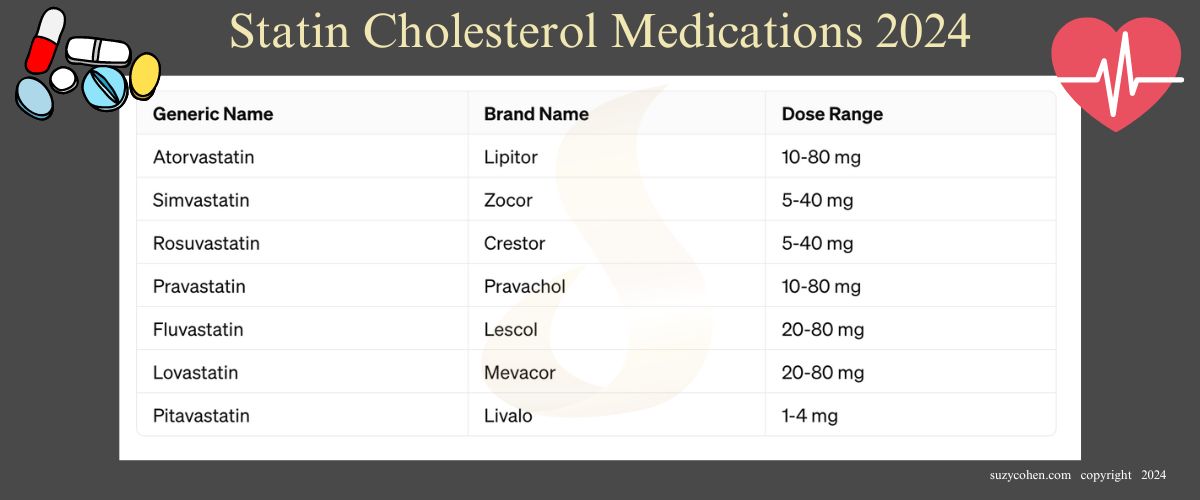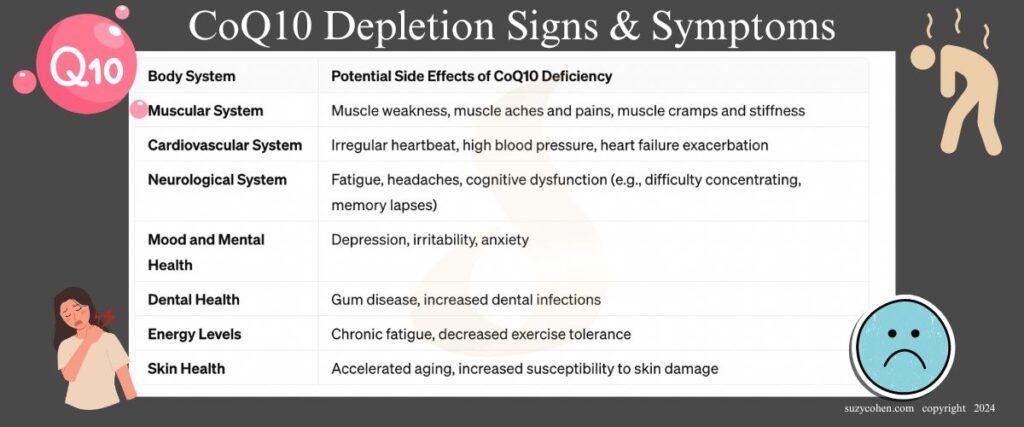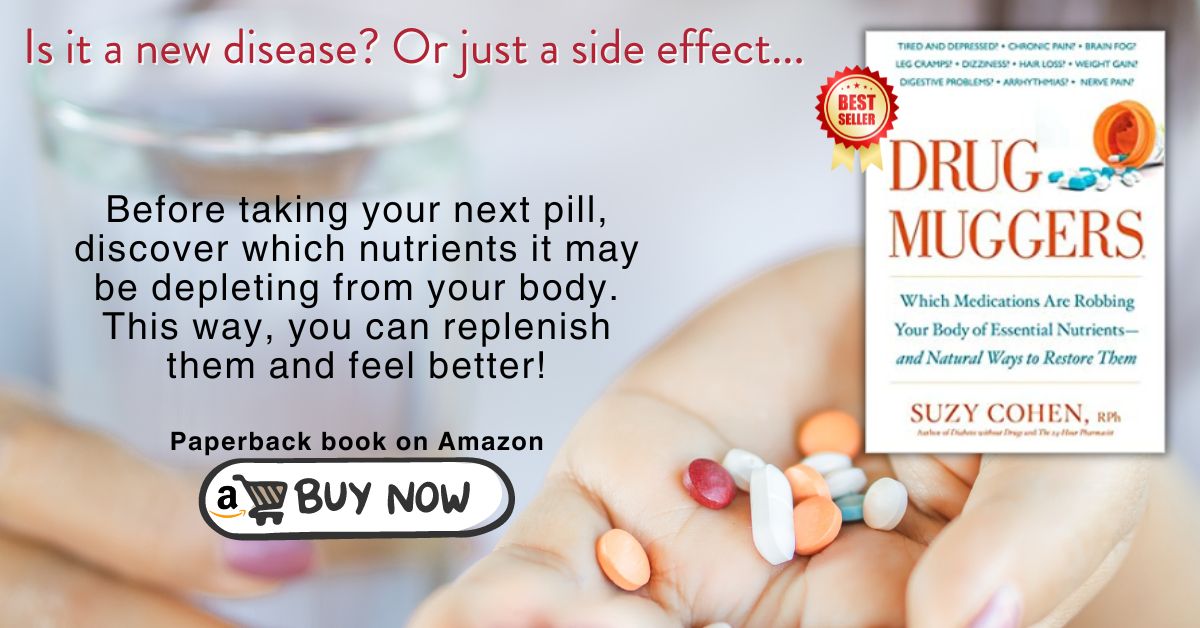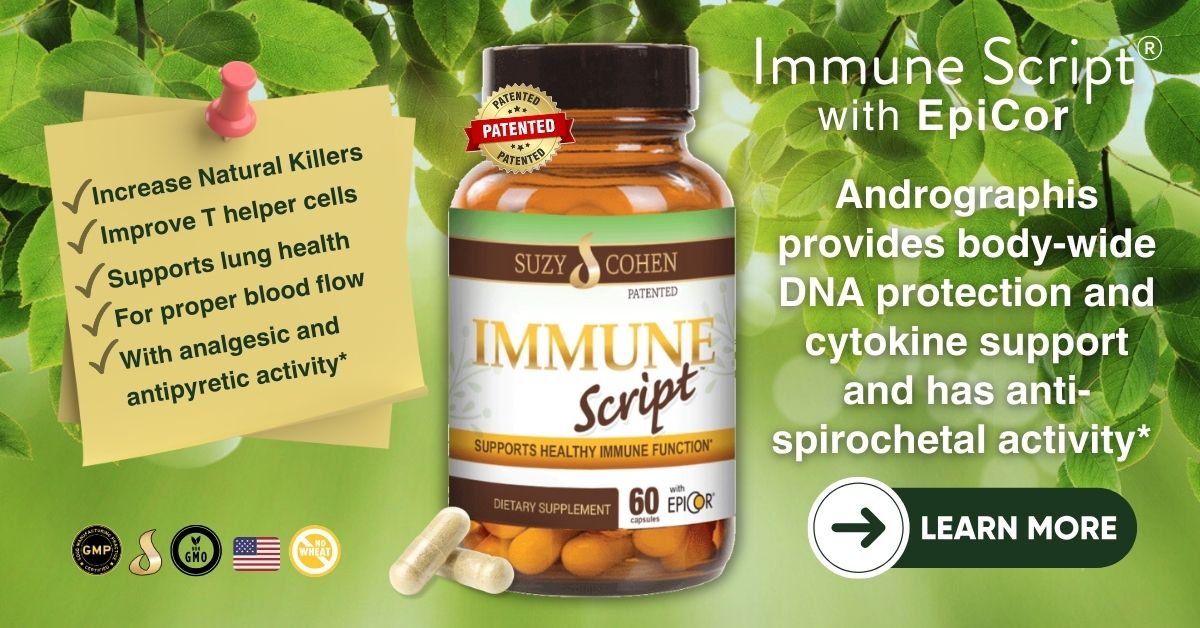What's On This Page?
ToggleThe most commonly recognized supplemental form of CoQ10 has been known as “ubiquinone” or “coenzyme Q10.”
Years ago, Japan’s biggest producer of CoQ10, Kaneka has found a way to stabilize a pure and BIO-IDENTICAL form of the nutrient. It is called ubiquinol, and it’s the downline metabolite of CoQ10. In other words, it’s the biologically ACTIVE version of CoQ10 so it’s stronger, and it slips right into your cells. There is a need to worry about whether or not your body (and your gut) can convert the CoQ10 to its active form (ubiquinol).
Conversion of Ubiquinol Slows As We Age
As you age, not only do you produce less CoQ10, but your body becomes less efficient at converting CoQ10 to the active form – Ubiquinol.
Coenzyme Q10, often simply referred to as CoQ10, plays a crucial role in producing energy in your cells and acts as a powerful antioxidant. As we age, our bodies naturally produce less CoQ10, and this decline is further accelerated by various medications, which can deplete this essential nutrient. Here’s a big list (and an updated look) at the medications that may “mug” you of CoQ10, potentially leading to decreased energy levels, increased oxidative stress, and other health issues.
Why Ubiquinol Might Be Better than CoQ10
Ubiquinol, the active form of CoQ10, is more bioavailable and may be particularly beneficial for those who have difficulty converting CoQ10 into its active form, including individuals with certain health conditions like diabetes, gastrointestinal problems, autoimmune disorders, and heart diseases. As the biologically active version of CoQ10, ubiquinol is more readily utilized by the body, making it a superior choice for enhancing cellular energy and combating fatigue.
Current Medications Known to Deplete CoQ10
Our understanding of drug-induced nutrient depletion has grown, and the list of medications known to deplete CoQ10 has been refined to include the most commonly prescribed drugs today. Here’s an updated list, including some newer medications that also impact CoQ10 levels:
- Statins (e.g., Atorvastatin, Simvastatin, Rosuvastatin): These cholesterol-lowering medications are perhaps the most well-known CoQ10 depleters.
- Beta-blockers (e.g., Metoprolol, Propranolol): Used for high blood pressure and heart conditions, these can also reduce CoQ10 levels.
- Antidepressants (e.g., Amitriptyline, Nortriptyline): Some medications for depression can affect CoQ10.
- Diabetes medications (e.g., Glyburide, Metformin): These can interfere with CoQ10 in the body.
- Diuretics (e.g., Hydrochlorothiazide, Furosemide): Often prescribed for high blood pressure or fluid retention, these can lower CoQ10 levels.
Updated April 2024: Additional Medications Added to the List
Since this blog was written several years ago, research has identified additional medications that may deplete CoQ10:
- Antipsychotics (e.g., Haloperidol, Risperidone)
- Newer statins (e.g., Pitavastatin)
- Certain cancer medications (specifically targeted therapies)
- Additional hypertension drugs (e.g., Candesartan, Valsartan)
Supplementing with Ubiquinol
If you’re taking any of these medications, supplementing with ubiquinol can be a proactive way to mitigate potential deficiencies. Starting with 100 mg of ubiquinol daily is generally recommended, but depending on individual health circumstances and the extent of CoQ10 depletion, some may benefit from up to 200 mg per day.
What is a Drug Mugger?
There are hundreds of medications which could be slowly stealing the life out of you. I believe that when a drug steals a nutrient, you will develop a new symptom. You may not realize that your new symptom is related to a drug-nutrient depletion. Please consider all the reasons why you might not be feeling as good as you used to, it’s not always black and white, and based on some lab result.
If you are weak and tired, it may be your blood pressure medicine, or your statin, or your hormones, you’ll see these drugs on the list below.
An Absurdly Inexpensive Way to Feel Better
The subject of vitamins, minerals and nutrients is explored in-depth in my best-selling book Drug Muggers, which explains to you how to feel better when you develop a symptom (so you don’t have to start yet another new drug!!!)
Wouldn’t that be wonderful? If you knew what medicines were depleting a nutrient, you could quickly fix that deficiency and hopefully erase the symptoms that plague you (without having to resort to more and more pills). The following list of medications are those that can interfere with your heart-healthy nutrient, CoQ10 and therefore ubiquinol.
Read the list and see if you’re medicine is on it. If you are not sure, please call your local pharmacist to find out if your medication is on the list since I cannot answer you personally. I’ve included as many international brand names as possible, but it helps if you know the “generic” name of your medicine.
Statins Are Well-Known Drug Muggers of CoQ10
Let me first list the medications and then down below you can see the bigger list of medications – there are so many that interfere with CoQ10 absorption, production and synthesis.
You may also be interested in another article I wrote, Taking Statins? Beware Of Cramps: 5 Ways To Stay Safe.

Drug Muggers of CoQ10 (and therefore Ubiquinol):
Acebutolol (Sectral, Prent)
Acetohexamide (Diamox)
Acetophenazine (Tindal)
Amiloride and Hydrochlorothiazide (Moduretic)
Amitriptyline (Elavil)
Amoxapine (Ascendin)
Atenolol (Tenormin)
Atenolol and Chlorthalidone (Tenoretic)
Atorvastatin (Lipitor)
Benzthiazide (Exna)
Betaxolol (Betoptic eye drops, Kerlone)
Bisoprolol (Zebeta)
Candesartan and Hydrochlorothiazide (Atacand HCT)
Carteolol (Ocupress eye drops)
Carvedilol (Coreg)
Chlorothiazide (Diuril)
Chlorpromazine (Thorazine)
Chlorpropamide (Diabinese)
Clomipramine (Anafranil)
Clonidine (Catapres)
Cyclothiazide (Anhydron)
Desipramine (Imipramine)
Doxepin (Sinequan)
Droperidol (Inapsine)
Enalapril and Hydrochlorothiazide (Vaseretic)
Enoxacin (Penetrex)
Esmolol (Brevibloc)
Ezetimibe (Zetia)
Fenofibrate (Tricor)
Fluphenazine (Prolixin)
Fluvastatin (Lescol)
Gemfibrozil (Lopid)
Glimepiride (Amaryl)
Glipizide (Glucotrol, Glucotrol XL)
Glyburide (Micronase, DiaBeta, Euglucon)
Glyburide and Metformin (Glucovance)
Haloperidol (Haldol)
Hydralazine (Apresoline)
Hydralazine and Hydrochlorothiazide (Apresozide)
Hydralazine, Hydrochlorothiazide, and Reserpine (Ser-Ap-Es)
Hydrochlorothiazide or HCTZ (Hydrodiuril)
Hydrochlorothiazide and Reserpine (Hydropres, Hydroserpine)
Hydrochlorothiazide and Spironolactone (Aldactazide)
Hydrochlorothiazide and Triamterene (Maxzide, Dyazide)
Hydroflumethiazide (Diucardin, Saluron)
Imipramine (Tofranil)
Indapamide (Lozol, Lozide, Apo-Indapamide)
Irbesartan and Hydrochlorothiazide (Avalide)
Labetalol (Normodyne, Trandate)
Losartan and Hydrochlorothiazide (Hyzaar)
Lovastatin (Mevacor, Apo-Lovastatin, Anlostin, Aztatin, Belvas)
Mesoridazine (Serentil)
Methdilazine (Bristaline, Dilosyn, Disyncram)
Methotrimeprazine (Apo-Methoprazine, Novo-Meprazine; Nozinan)
Methyclothiazide (Enduron, Aquatensen)
Methyldopa (Aldomet, Apo-Methyldopa)
Methyldopa and Hydrochlorothiazide (Aldoril, Apo-Methazide)
Metolazone (Zaroxolyn, Mykrox)
Metoprolol (Lopressor, Toprol XL, Apo-Metoprolol, Betaloc, Durules, PMS-Metoprolol)
Moexipril and Hydrochlorothiazide (Uniretic)
Nadolol (Corgard)
Nortriptyline (Pamelor)
Perphenazine (Trilafon)
Pindolol (Visken)
Polythiazide (Renese)
Pravastatin (Pravachol, Apo-Pravastatin)
Prazosin and Polythiazide (Minozide)
Prochlorperazine (Compazine)
Promazine (Sparine)
Promethazine (Phenergan)
Propafenone (Trental)
Propranolol (Inderal)
Propranolol and Hydrochlorothiazide (Inderide)
Protriptyline (Vivactil, Triptil)
Quinethazone (Hydromox)
Repaglinide (Prandin, GlucoNorm)
Rosuvastatin (Crestor)
Simvastatin (Zocor, Apo-Simvastatin, Revastat, Simvacor, Lisac, Cardin)
Sotalol (Betapace, Alti-Sotalol)
Telmisartan and Hydrochlorothiazide (Micardis-HCT, Micardis Plus)
Thiethylperazine (Torecan)
Thioridazine (Mellaril, Apo-Thioridazine)
Timolol (Timoptic, Apo-Timol,
Tolazamide (Tolinase)
Tolbutamide (Apo-Tolbutamide, Diabetose)
Trichlormethiazide (Metahydrin, Naqua)
Trifluoperazine (Stelazine)
Valsartan and Hydrochlorothiazide (Diovan HCT)
Conclusion and Other Resources
Being aware of the potential for certain medications to deplete essential nutrients like CoQ10 can help you take informed steps to maintain your health. If you suspect you’re experiencing symptoms related to CoQ10 depletion, such as fatigue or muscle aches, discuss with your healthcare provider whether supplementation might be right for you.
I’ve discussed CoQ10 in a few other articles, you may want to use my search box. Here are a couple of options too:
Revealing 15 Hidden Causes Of Shortness Of Breath And How To Overcome Them
Magnesium And CoQ10 Improve Leg Cramps

Stay Informed
Always keep up-to-date with the latest health news and medication research to ensure you’re taking care of your body in the best way possible. Remember, while supplements can help counteract nutrient depletion, they should be used under the guidance of a healthcare professional to ensure safety and effectiveness. If you decide to supplement keep in mind, 100 mg of CoQ10 is equivalent to 50 mg ubiquinol.
Feel empowered to take control of your health by understanding the side effects of your medications and the simple steps you can take to counteract them. For more insights into drug-induced nutrient depletions, explore my other resources or use my search box. Be sure to consult with a practitioner who understands the importance of nutritional balance in medication management.

Suzy Cohen, has been a licensed pharmacist for over 30 years and believes the best approach to chronic illness is a combination of natural medicine and conventional. She founded her own dietary supplement company specializing in custom-formulas, some of which have patents. With a special focus on functional medicine, thyroid health and drug nutrient depletion, Suzy is the author of several related books including Thyroid Healthy, Drug Muggers, Diabetes Without Drugs, and a nationally syndicated column.



